KS(book)Report: Déjà Blue | by Jerry Tipton

Jerry Tipton is a legend. Whether it be gloriously or notoriously so, that is in the eye of the beholder, but no one can question his tremendous impact on Big Blue Nation over 41 years of reporting on Kentucky basketball. If you followed the ‘Cats in the 1980s, 1990s, 2000s, or 2010s, you most certainly read something Jerry Tipton wrote. At the very least, if you lived in a household with a Lexington Herald Leader subscription, at some point you probably used a Jerry Tipton newspaper article as a pee mat for your dog, inadvertently or not.
Tipton retired from the Kentucky beat in 2022 and has since parlayed his rich knowledge of history into a book, dubbed Déjà Blue. For what will likely be the last rendition of this KS(Book)Report series this summer, I dove headfirst into Tipton’s half-memoir, half-Kentucky basketball history tome, and I am ready to exude the many thoughts it provoked.
Previously in the summer KS(Book)Report, I explored Rex Chapman’s It’s Hard for Me to Live with Me and Jack Givens’ They Call Me Goose. While both of those autobiographies were enjoyable in their own right, reading a book from a man who has written for a living his entire life was a welcomed change. Say what you want about Jerry Tipton, the man knows how to press fingers on a keyboard in a clever sequence.
Tipton pushes back on his reputation of being unfair
If you are a Kentucky fan hoping for a mea culpa from Jerry Tipton, John Calipari has oceanfront property in Arkansas to sell you. In the first paragraph, Tipton comes out swinging in defense of his complicated reputation: “…friction between a reporter and people he or she is covering is inevitable. To borrow a well-worn cliche, the truth can hurt.”
This heel-digging mentality remains prevalent throughout the book, as he reiterates ad nauseam that his intent has always been to be objective. He scoffs at the notion he purposely took negative angles or carried a vendetta against Kentucky. Instead, he aimed to create a compelling story, nothing more and repeatedly sought to remove himself from whatever article he may be writing.
However, it was hard not to chuckle a bit at the multitude of examples where Tipton directly contradicted this honorable declaration.
Three championships did not make the highlight package
The most telling example of Tipton downplaying positivity in favor of leaning into the negative is the conspicuous omission of any Final Four or National Title detail. The second sentence of the book’s author bio, a blurb meant to convince a potential buyer into forking over twenty-something bucks, highlights how Tipton covered Kentucky through nine Finals Fours and three national championships. You were made to believe Tipton would reflect fondly on what a privilege it was to cover Kentucky during these times, and how he helped capture and emphasize the joy of these incredible memories.
Not so much.
The only reference to the 1996 title was in the context of losing the 1997 championship game:
“Kentucky nearly won back-to-back championships. In the 1997 championship game, UK lost to Arizona 84-79 in overtime. Reserve big man Nazr Mohammed missed all six of his free throws in that game.”
Jerry Tipton | Déjà Blue
I’m not sure what Nazr Mohammed did to deserve Tipton to roll a bus over him nearly 25 years after the fact, but alas, here we are.
Next came Tipton’s heartfelt recollection of the 1998 title:
“Of course, Kentucky won the 1998 national championship. But it was not all smooth sailing despite a 35-4 record, plus winning the [SEC] regular-season and postseason tournament championships. One notable moment came when Ole Miss beat Kentucky 73-64 in Rupp Arena…the first home loss to Ole Miss since 1927.”
Jerry Tipton | Déjà Blue
Tipton went on to recount a radio show postgame caller bemoaning that squad as “the worst 22-4 team in history” after the aforementioned Ole Miss loss. Yes, BBN gonna BBN when it comes to passionate overreactions after losses, but to reference this anecdote not once but twice in his 245-page career reflection speaks volumes.
He gave the 2012 championship year more page time, however he made sure to highlight the Christian Watford shot, and strangely boasted how he predicted the loss to Vanderbilt in the SEC Tournament championship game.
Were all of these facts objective? Sure. However, objectivity does not automatically equate to neutrality.
The Myth of Objectivity
Like so many reporters of any ilk, especially from the newspaper era, objectivity is the righteous shield they use as protection against arrows flung their way in retaliation for a perceived unfair story.
The concept sure does sound romantic. In the social media era of everyone having a platform and the need to spew their most hyperbolic opinion on any given subject, a more simplistic time when only a handful of experts delivered slant-free news seems welcoming. But the truth is, reporters are humans and humans of any flavor are not immune from leaking their feelings onto the page, especially over the course of 41 years.
Let’s say I was reporting on the result of a coin flip that landed on heads and wanted to give the impression I had no vested interest in the outcome. The most obvious way to say this would be, “The coin landed on heads.” However, in this hypothetical world where coin flips are newsworthy, consider this lede: “On this momentous occasion, the coin failed to land on tails, much to the dismay of those yearning for it to do so.”
Reading the second take, you might think, “What does this writer have against people wanting the coin to land on tails? Or against the coin, for that matter?” Sure, all the facts therein are objective, but they are by no means void of author influence. That’s why the veil of objectivity reporters like Tipton often entrench themselves behind is more of an invisible cloak readers can see right through.
However, now let me ask you this. Which coin flip lede was more interesting to read?
Exactly.
Acknowledging his role as a perceived villain
In a chapter of the book titled “Heroes and Villians,” Tipton recounts just two Kentucky heroes: Tayshawn Prince, specifically his five 3-pointers in a row against North Carolina, and the three times a UK player recorded a triple-double. Of course, he spent the majority of the text in the latter section discussing the controversy surrounding DeAaaron Fox’s 10th assist and Isaiah Briscoe’s final rebound. There was no mention of Aaron Harrison, Patrick Sparks, Cameron Mills, or many big-time shot-makers.
Underneath the two heroes, Tipton listed 14 (yes, 14) villains with whom Big Blue Nation has been at odds over the years. The list included the likes of Christian Laettner, Luke Maye, the NCAA at large, and interestingly enough, himself.
He signs off this section, after citing several not-so-polite interactions with readers, by quoting a compliment he received from his editor: “If they gave a Pulitzer Prize for excellent beat writing under miserable conditions for a number of years, [Jerry Tipton] should be the first to win.”
I’m sorry, miserable conditions? Look, I can personally attest to the vile feedback that comes with writing about Kentucky sports for thousands to read. KSR turned off the comment section in part due to its propensity for cruelty toward writers or other commenters. At worst, for its threats. It is the not-so-appealing part that comes with laying yourself out in front of the most passionate fanbase in college basketball.
But miserable conditions? Ouch.
Ultimately, this quote summarizes how Tipton reflects on his career throughout the book: perseverance in the face of unjust persecution.
Tipton’s background helps explain his worldview
Jerry Tipton did not come out of the womb with blue blood infused into his veins like so many babies born in the Bluegrass. Tipton grew up in Michigan and attended college at Marshall, where he interestingly started as a mathematics major. He liked basketball as a sport, but never really had a favorite team.
After school, he stuck around in Huntington, where he polished his skills with the local paper. He recalls his first real controversial article which exposed a bowling alley scandal involving illegally-greased lanes, much to the disgruntlement of its owners. It was his first true taste of negative feedback.
When the Lexington Herald job opened, he was excited to cover a school with the prestige of Kentucky basketball, a program he likened to the New York Yankees. However, the appreciation for its excellence never crossed over to fandom. Instead, the public’s fanaticism perplexed him.
This mindset dichotomy between Tipton and Kentucky fans reveals why there has been friction over the years.
On one side, you have the stoic reporter who puts “objectivity” above all else. Not only is cheering frowned upon while seated on press row, it is outright forbidden. On the other side, you have Big Blue Nation, a rabid fanbase whose members not only cheer for their team but also consider their fandom part of their identity.
It begs the question, however, why after 41 years did Tipton seemingly become less emphatic towards the fans’ mentality? To close out the book, Tipton quotes a sports psychologist friend who explained to him why he has no rooting interest in sports teams, while others do: maturity.
Top 10
- 1Trending
Travis Perry
hits 4 threes in Ole Miss' win over Houston
- 2Hot
Monday Lowe Update
Per Pope, Lowe's shoulder in 'really good shape'
- 3Hot
Stoops
acknowledges fan frustrations after Texas loss
- 4
5 Stages of UK FB Grief
It's time to mourn the Stoops era
- 5
Auburn game time
Cats vs. Tigers at night on Nov. 1
Get the Daily On3 Newsletter in your inbox every morning
By clicking "Subscribe to Newsletter", I agree to On3's Privacy Notice, Terms, and use of my personal information described therein.
Despite his stated efforts to do the opposite, this feeling of being more mature than his readers (some might say superior) often spilled out into this writing and created a natural schism between Tipton and all those silly, immature fans.
No shortage of justifications
As any good reporter would do, Tipton cited multiple sources that backed up his argument that he was objective and fair in his coverage of Kentucky sports, mostly in the form of former players and coaches.
Tipton quoted the likes of Kenny Walker, John Calipari, Kellen Grady, Tony Delk, and more saying something along the lines of, “You were tough but fair,” or, “You were just doing your job.” Most of these guys would also admit, however, that they did not think this at the time they were playing or coaching.
It is amazing what several years and a friendly call from an old acquaintance who just retired wanting to quote you in his book do to the fondness of your remembrance of him.
I don’t mean to come across as snarky here. I’m sure all of those guys made genuine statements that reflect how they felt about one of the most storied writers to ever do it. Maybe every program needs a beat writer they can’t stand in the heat of the battle but appreciate later.
Tipton’s influence on me
This will break Tipton’s rule about not injecting yourself into the story, but oh well: Jerry Tipton quoted me in the newspaper once. I was sitting in the newly minted eRUPPtion Zone before the start of a game when an older gentleman approached me and asked what I thought of the arena’s new student section. I had just gotten back from visiting some friends at Duke, which I told him. Tipton relayed my sentiment on December 3, 2002: “Sophomore Adam Stratton said he would like to see students surround the entire lower arena similar to Cameron Indoor Stadium.”
I had forgotten about the interaction until my dad called me thrilled that I “made the paper.” I didn’t know who Tipton was at the time, but remember how impressed I was with his ability to write in shorthand in his notebook. That is basically a symbol-based language used to increase writing efficiency to capture quotes without making people repeat themselves. To me, both then and now, it might as well be Klingon, and I will always be impressed with Titpon’s mastery of this rare skillset.
My friends and I also snagged a picture with the Lexington icon in New York when Kentucky played UConn in 2009. The caption my friend wrote under the post was, “Jerry Tipton, just prior to writing a very negative article about the Cats.”

This caption embodies much of the feelings Big Blue Nation has toward Jerry Tipton. An admired celebrity worthy and amicable enough to get a picture with, while equally an ominous figurehead, symbolic of a treacherous outsider constantly trying to “get” Kentucky basketball.
It is a role not too many people can embody with a smile, but Tipton did it for a long, long time, and there is a lot to be said for that.
As Tipton alludes to in his book, every hero needs a villain. Good can’t just exist by being good alone. Batman needs the Joker. Superman needs Lex Luthor. And Kentucky basketball needs Jerry Tipton. His absence is already being felt at news conferences now that reporters with marketed fandom outnumber those who don’t.
So yes, I keep Jerry Tipton’s journalistic integrity in mind when I write for KSR. While my (and every KSR writer’s) fandom is no secret, I try not to let it impede sound judgment. In other words, I endeavor to be objective, but by no means neutral.
Overall Impression and Rating
To someone who grew up in the Internet era reading message boards and Kentucky Sports Radio for their Wildcat sports news, Jerry Tipton is from a different planet. Yet, if an actual alien were to write a book, I’d probably read it and recommend it to others.
Jerry Tipton’s Déjà Blue fits that bill.
The book is divided into three parts. It begins with a recap of how he got into sports journalism and his journey to Lexington. He then transitions into his time covering Kentucky basketball, divided up by head coach eras. If you can get by his pessimistic skews, this section is full of never-before-seen quotes and stories. The final third of the book is primarily a collection of would-be newspaper articles, had he not been retired, capped off by why he felt it was time to finally hang up the typewriter.
In a way, Tipton was ahead of his time. He was clickbait before clicks existed. He served up a feed for doomscrolling before Mark Zuckerberg was born. I don’t say that to degrade him. Truthfully, troll content in the form of a well-researched, properly sourced, high-quality article published by a prestigious news outlet carries a different weight than when that guy from high school posts a meme on Facebook he got by “doing his own research.” There’s a certain validation that comes with it.
While I do believe Tipton sought out eyeballs via knocking down the state’s most treasured entity a peg or two, and I found his perpetual insistence in Déjà Blue that he did not to be exhaustive at times, I do not contend his efforts were malicious. As he says throughout the book, his goal has always been to be compelling. And for better or worse, getting riled up about something is compelling.
In fact, Déjà Blue was so compelling, that it compelled me to write 2500 words about it. Mission accomplished, Mr. Tipton. Much respect for your legendary career.
On a scale of zero to eight banners, I give Deja Blue a 6.5.
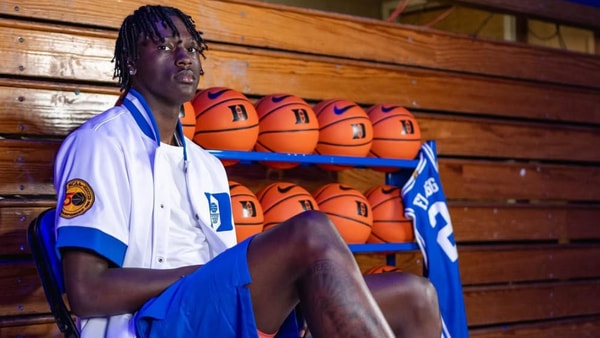
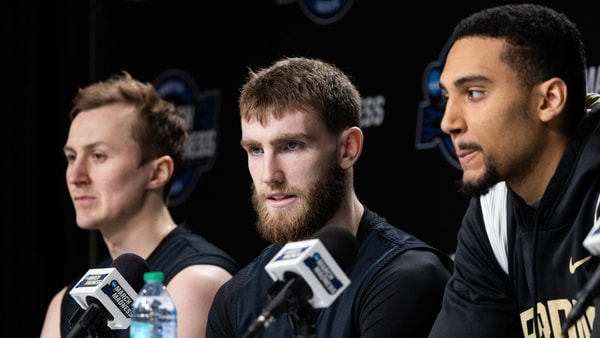
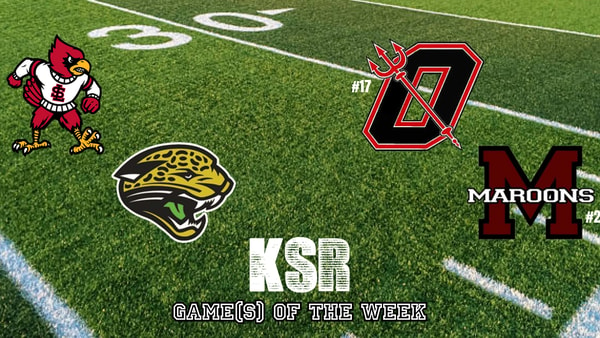
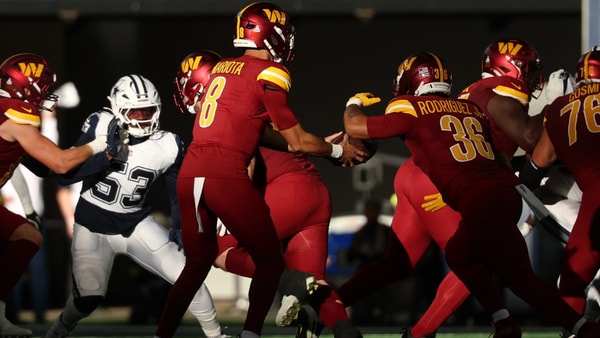
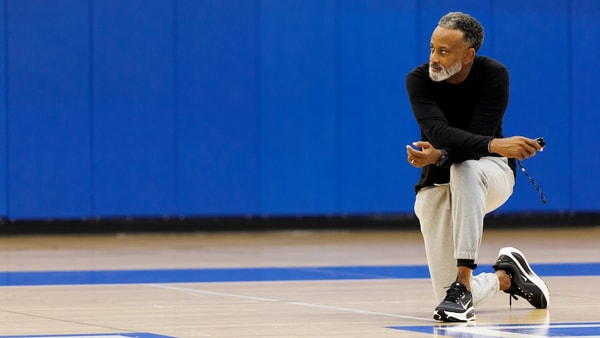
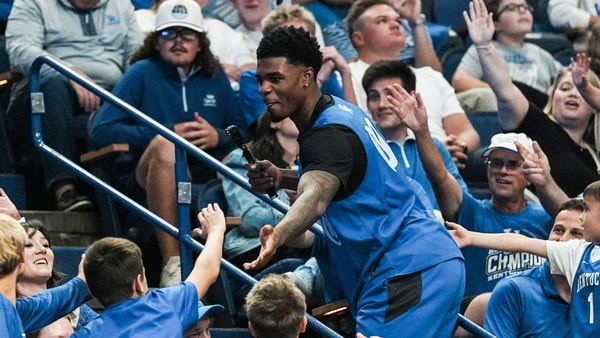


Discuss This Article
Comments have moved.
Join the conversation and talk about this article and all things Kentucky Sports in the new KSR Message Board.
KSBoard